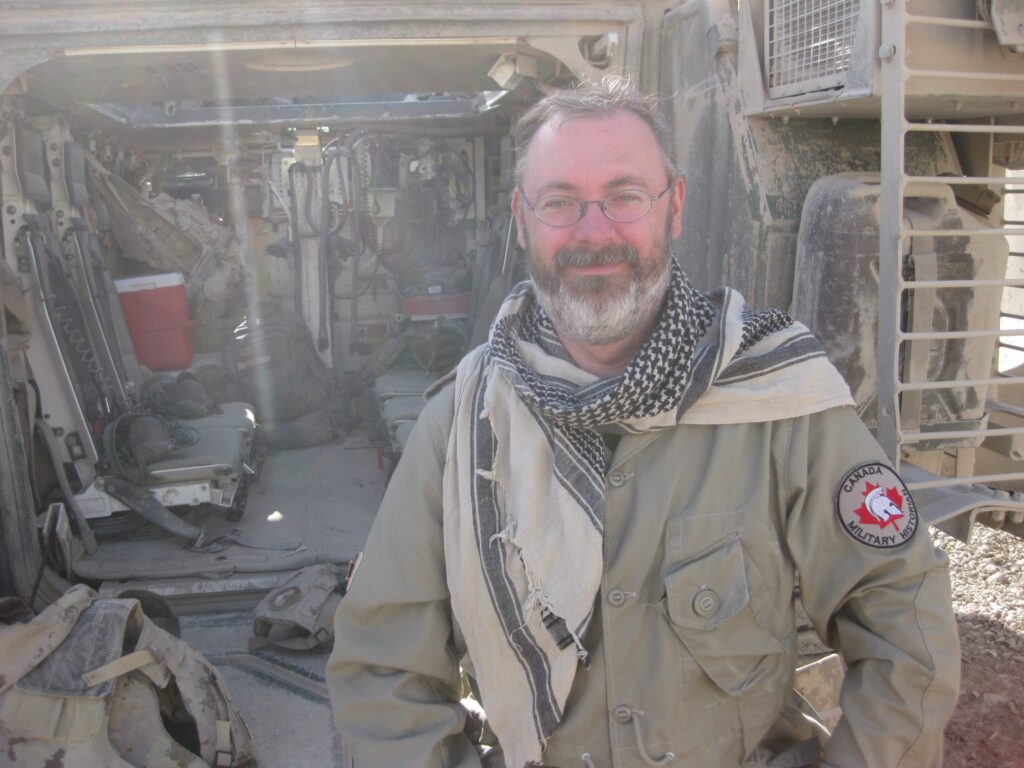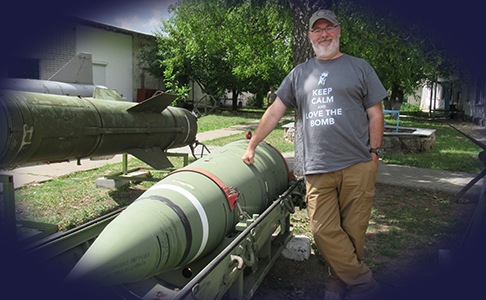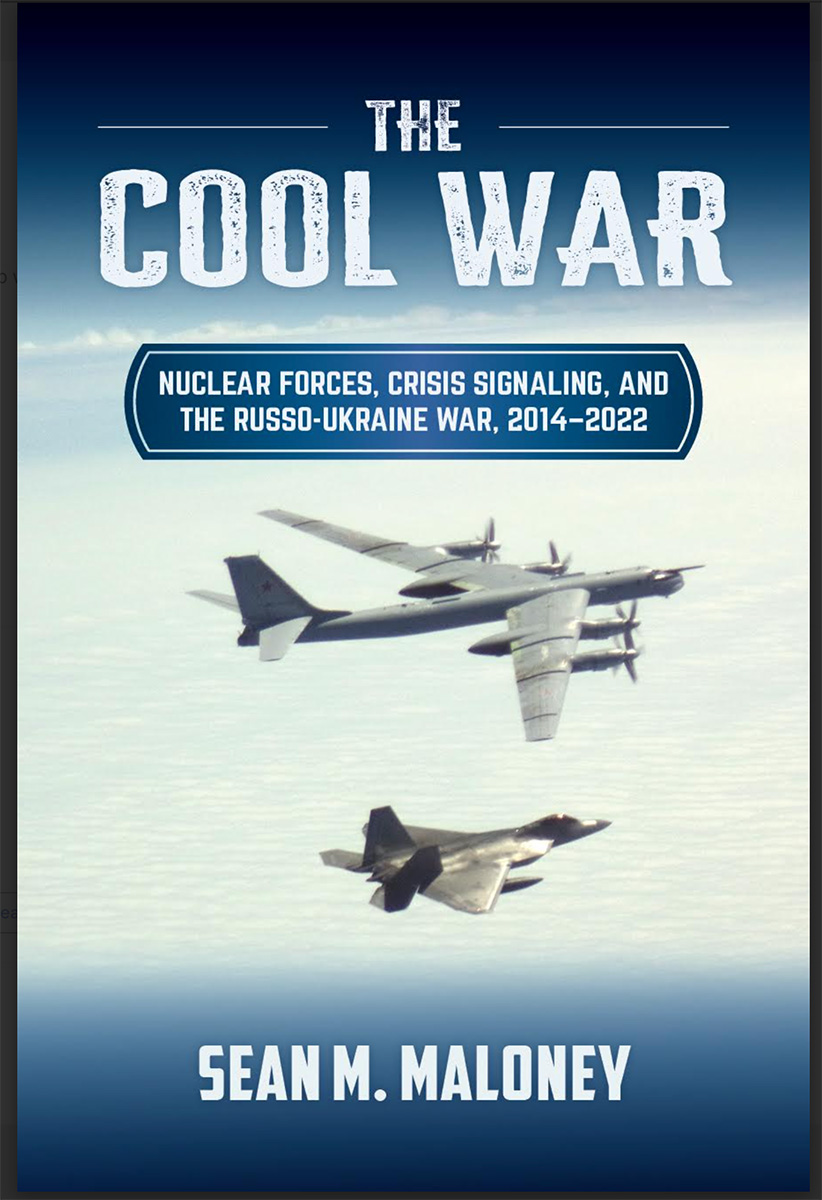
Coming Soon – The Cool War
Nuclear signaling is defined as the deliberate maneuvering of nuclear forces to deter and influence an adversary’s actions. Author Sean Maloney shows how Russian leader Vladimir Putin has systematically employed nuclear signaling to force desired behavior from both NATO and the United States. This strategy has escalated greatly during the Russo-Ukraine War as Putin seeks to deter Western intervention and support of Ukraine.
“This is an essential reference to understand how Russia’s president Putin has employed strategic nuclear forces in his 21st century crusade to subjugate Ukraine and intimidate Europe and America. Strategic signalling using nuclear forces, coupled with modern information warfare, is an integral part of the confrontation between democracies and authoritarian regimes. It is crucial that we understand this to develop effective national security strategies for the decades ahead.”—Maj. Gen. Mick Ryan, AUA (Ret.), author of The War for Ukraine and War Transformed
“In this very timely work, Sean Maloney argues persuasively that Putin’s reign of power in Russia has been characterized by a new way of nuclear deterrence signaling that it is woven together with advancements in information technology. This period, which the author terms the “Cool War,” extends to the present day. To back up his argument, Sean takes the reader through a history of nuclear and conventional signaling up to the eve of the current Ukraine crisis. Readers interested in deterrence, nuclear operations, U.S.-Russian relations, and the Russo-Ukrainian War would all benefit from reading this book.”—Melvin Deaile, Director of the School of Advanced Nuclear Deterrence Studies, USAF Air Command and Staff College
Available October 14, 2025 from the U.S. Naval Institute.
News and Events
The latest news about Dr. Maloney, and recent and/or upcoming appearances.
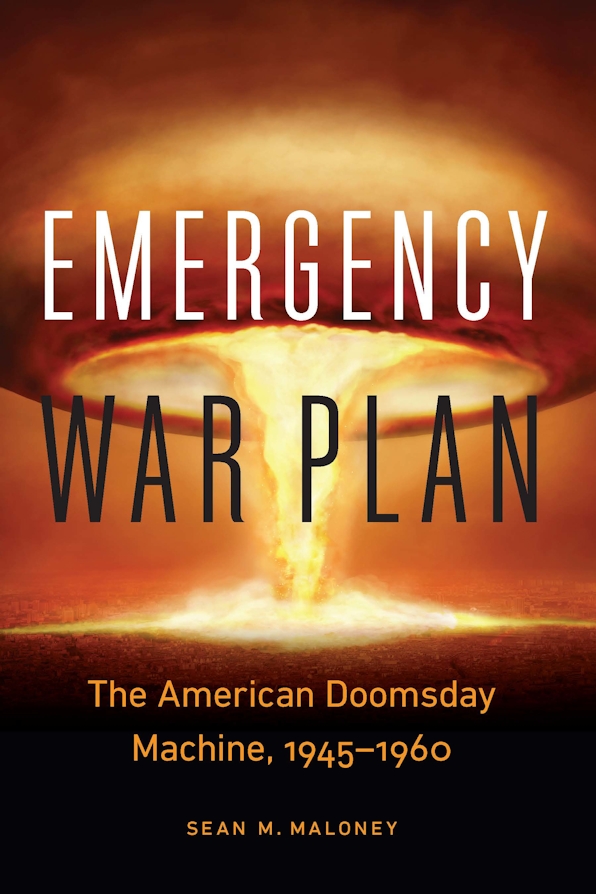
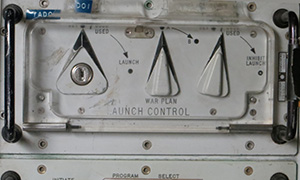
Nuclear Weapons
The history of nuclear weapons and their use as part of the deterrent system established during the Cold War was hampered by post-Cold War neglect and a generational loss of expertise in the field. Our current circumstances dictate that we re-examine the role of nuclear weapons in policy and strategy. This can only be done with a non-ideological analysis of the Cold War nuclear enterprises. Dr. Maloney’s current work seeks to push the boundaries in these subject areas beyond those established in the 1990s.
Afghanistan
The current framework applied to the post-9/11 war in Afghanistan asserts that the conflict was a useless, avoidable, “forever war” lumped in with the 2003 invasion of Iraq. This dismissive approach reflects the ennui after the 2021 takeover of Afghanistan and the chaotic withdrawal of Western forces and personnel. The reality is that the war in Afghanistan from 2001 to 2014 was much more complex and nuanced than depicted, with definable successes. Dr. Maloney was constant observer in Afghanistan from 2003 to 2014 and his writings reflect this more complex picture.
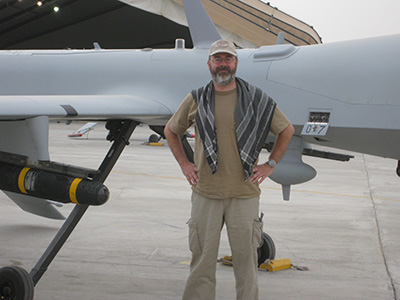
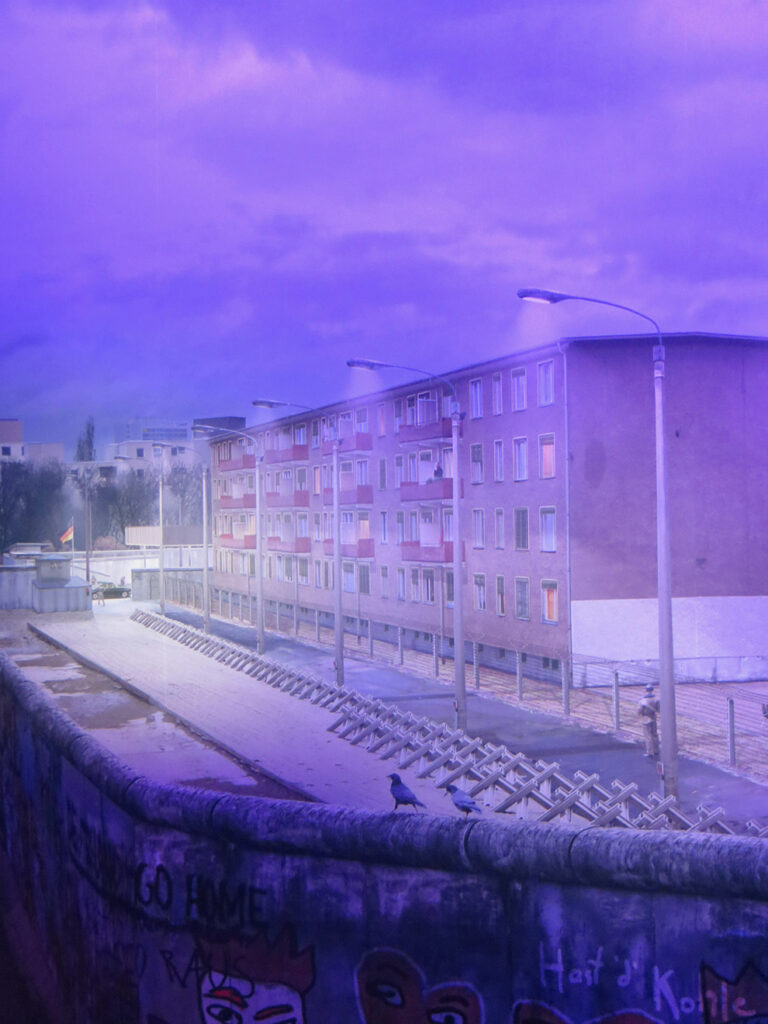
The Cold War
The Cold War remains our best case study and predictor in relationship to the contemporary operating environment. The historiography of the Cold War has dramatically expanded our understanding of the length and complex conflict since 1991. Unfortunately, obsolete history littered with Cold War-era disinformation continues to litter a better understanding of the period. Dr. Maloney continues in his efforts to add to the Cold War historiographical tapestry.
Peacekeeping and Stabilization Operations
Unmasking the mythological perception of UN peacekeeping operations that dominated public discourse in the 1990s and early 2000s was a critical contribution by Dr. Maloney to correcting the historical record. At the same time, the need to define stabilization operations as something distinct from traditional peacekeeping was crucial in order to delineate counterinsurgency operations in Afghanistan from peacekeeping and stabilization operations.
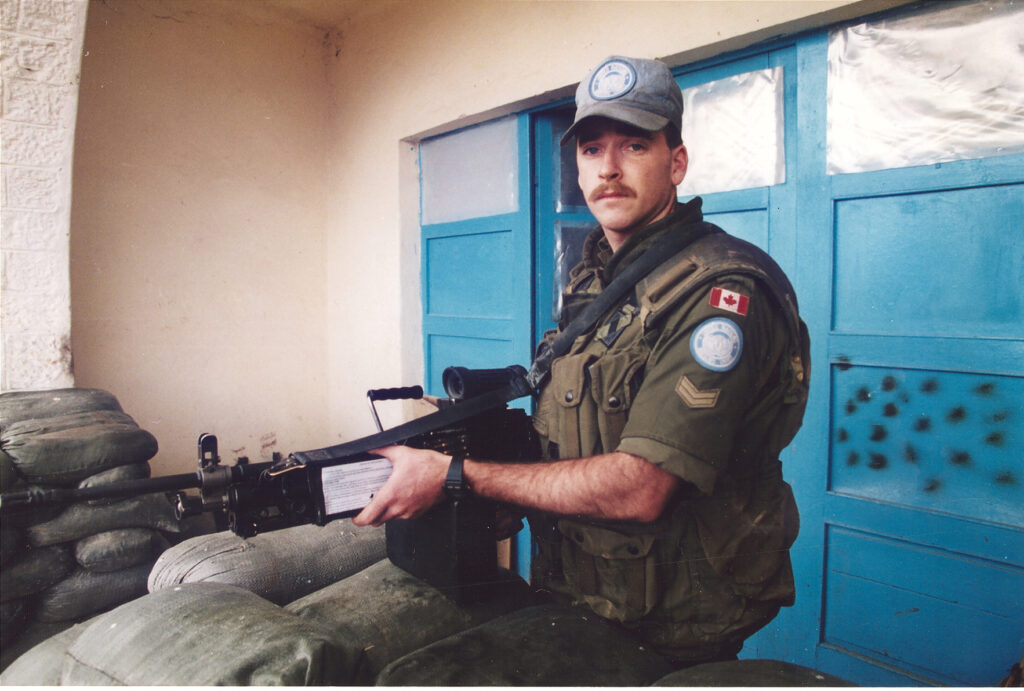
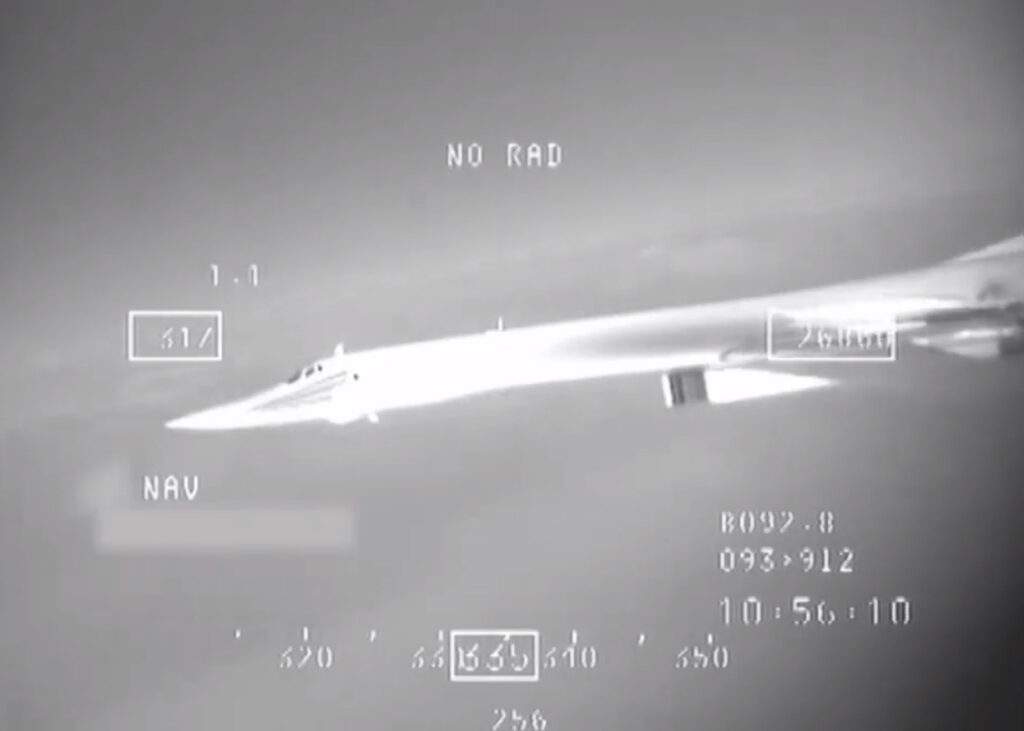
Contemporary Conflict
History-based commentary is needed more than ever in our era which is dominated by disinformation and outright information warfare that uses history as a weapon. It is crucial that we retain our links to the past while recognizing that it is a solid base to move forward.
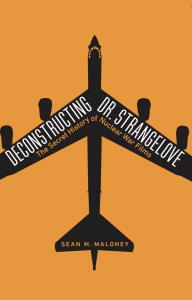
Books
Dr. Sean M. Maloney has books in a wide variety of subject areas, including:
- The Canadian Army in Afghanistan Volume III: Counterinsurgency in Kandahar, 2009-2011
- The Canadian Army in Afghanistan Volume II: Counterinsurgency in Kandahar, 2007-2008
- The Canadian Army in Afghanistan Volume I: A Nation Under Fire, 2001-2006
- Emergency War Plan: The American Doomsday Machine, 1945-1960
- Deconstructing Dr. Strangelove: The Secret History of Nuclear War Films
- Operation KINETIC: Stabilizing Kosovo
- War in Afghanistan: Eight Battles in the South, 2007-2009.
- Fighting For Afghanistan: A Rogue Historian at War
- Confronting the Chaos
- Learning to Love the Bomb: Canada’s Nuclear Weapons During the Cold War
- Enduring the Freedom
- Campaigns for International Security: Canada’s Defence Policy at the Turn of the Century
- Chances for Peace: Canadian Soldiers in the Balkans, 1992-1995
- Canada and UN Peacekeeping: Cold War by Other Means
- The Royal Canadian Armoured Corps: An Illustrated History co-authored with John Marteinson and Michael McNorgan
- War Without Battles: Canada’s NATO Brigade in Germany, 1951-1993
- Securing Command of the Sea: NATO Naval Planning, 1948-1954
About Dr. Maloney
Dr. Sean M. Maloney is a Professor of History at the Royal Military College and served as the Historical Advisor to the Chief of the Land Staff during the war in Afghanistan. He previously served as the historian for 4 Canadian Mechanized Brigade, the Canadian Army’s primary Cold War NATO commitment after the re-unification of Germany and at the start of Canada’s long involvement in the Balkans. Dr. Maloney has extensive field experience in that region, particularly in Croatia, Bosnia, Kosovo and Macedonia from 1995 to 2001, where he inadvertently observed the activities of the Al Qaeda organization and its surrogates. His work on the Balkans was interrupted by the 9-11 attacks. From 2001 Dr. Maloney has focused nearly exclusively on the war against the Al Qaeda movement and its allies, particularly on the Afghanistan component of that war. He traveled regularly to Afghanistan from 2003 to 2014 to observe and record coalition operations and concurrently served as an advisor to a number of organizations operating in that country. He was the first Canadian civilian military historian to go into combat since the Second World War. With Canada’s involvement in Afghanistan winding down, Dr. Maloney returned to teaching at Royal Military College. Building on his groundbreaking work dealing with Canada and nuclear weapons, he also returns to his first and primary area of interest, the long, difficult, and in many ways, still secret Cold War.
